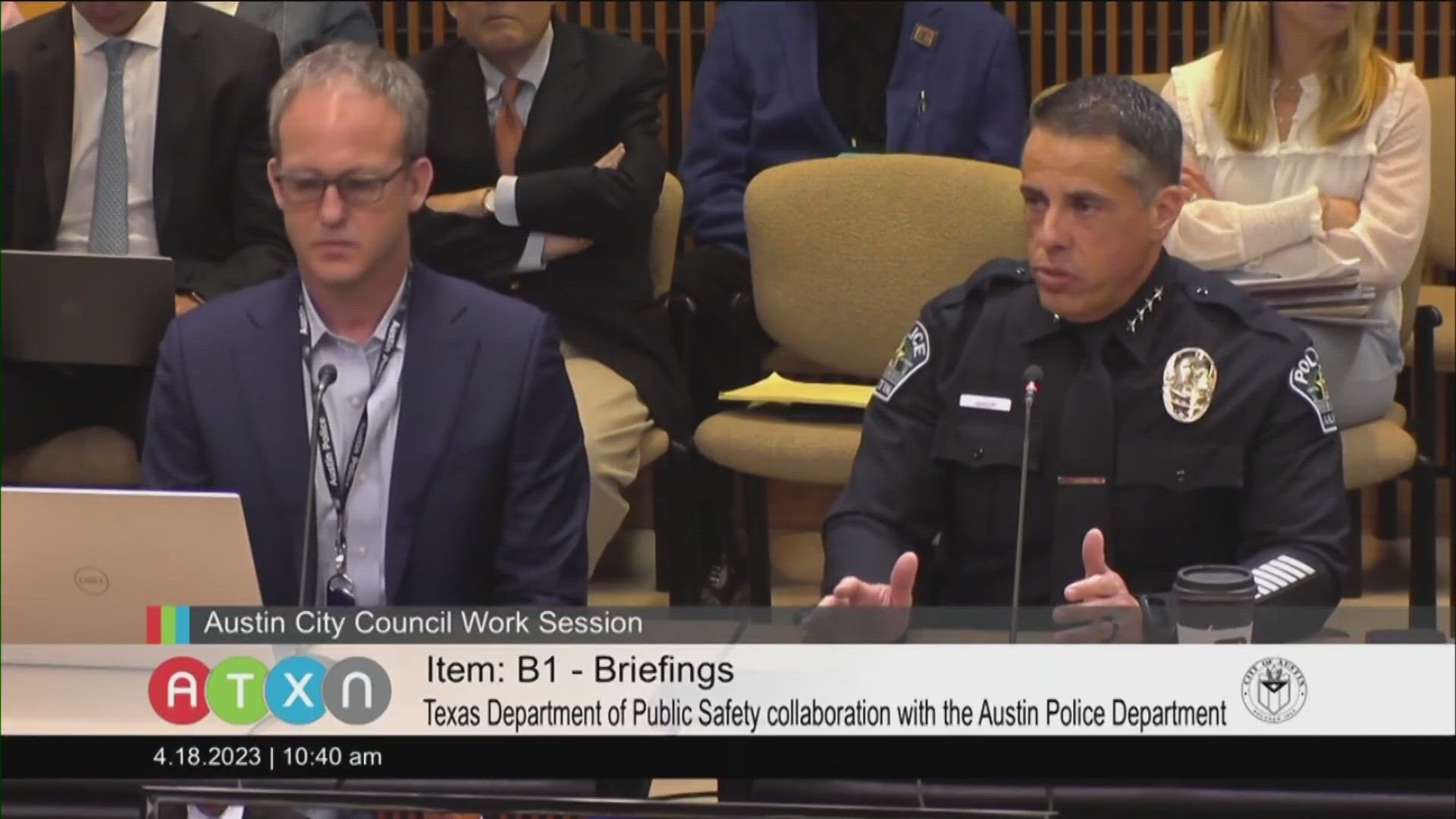AUSTIN, Texas —
Members of the Austin City Council got the chance to have their questions answered about the partnership between the Austin Police Department (APD) and the Texas Department of Public Safety (DPS) on Tuesday.
The special briefing was held during the council's work session. Some councilmembers say the partnership came as a surprise, so they were looking forward to learning more about it.
"This is something that's new to the City of Austin, and we don't want to implement it in the wrong way because we run the chance of losing trust in the community if it's not done properly," Councilmember Mackenzie Kelly (District 6) said.
DPS has been assisting APD with patrols since March 30. Austin Police Chief Joseph Chacon explained that this partnership comes at a critical point where the department is 300 officers short.
In the last two-and-a-half weeks, Chacon said violent crimes have dropped 25% from the average weekly number.
Kelly said they are grateful to have the help, especially considering the vacancy levels in the department, but she has questions about how it will be implemented. Those questions Kelly would have preferred to have answered before the partnership began.
"Now I'd like to know where our police efforts are being put. I'd like to know where in the city some of the crime hotspots are that DPS will be responding to," Kelly said. "I'd like to know how many traffic citations that they've written that APD has not been able to. And I'd like to know how effective that they've been in their crime-fighting ability."
During a status update, APD said DPS has made more than 4,000 traffic stops and written tickets for about 25% of the stops.
Councilmember Vanessa Fuentes (District 2) said some community members are wondering if those stops are being targeted based on the demographic area.
"The concerns that I hear from my community is when they're seeing a significant presence of troopers in their neighborhoods. These are neighborhoods that are predominately low-income neighborhoods or communities of color," Fuentes said. "They want to know why are they here. ;Are these troopers also located in other parts of the city? Are we being disproportionately targeted? Is the enforcement disproportionately targeted?' There are a lot of questions that are bubbling up."
"This is call-driven. The decision on exactly where to deploy is not based upon we're telling them to deploy to this sector or this sector. What we're telling them is, 'This is where the calls for service are coming in,'" Chacon said.
Chacon said he meets daily with the DPS regional director for Central Texas to make sure they are operating in alignment with APD. APD and DPS leadership meet weekly with troopers deployed throughout the City to set out expectations.
Another concern about the partnership relates to enforcement policies.
Chas Moore, the executive director for the Austin Justice Coalition, gives APD and Austin voters credit on efforts to decriminalize certain marijuana offenses. But he said DPS troopers don't abide by those rules.
"A law enforcement agency that, again, has no obligation to abide by local city ordinances that we here in the City of Austin have passed because we have had conversations around the inequities in policing," Moore said.
There is no word on how long the partnership will last, and there is no set timeframe for APD to report this data to council as it comes in. But when Dallas had a similar partnership with DPS, it dissolved after about seven weeks.

